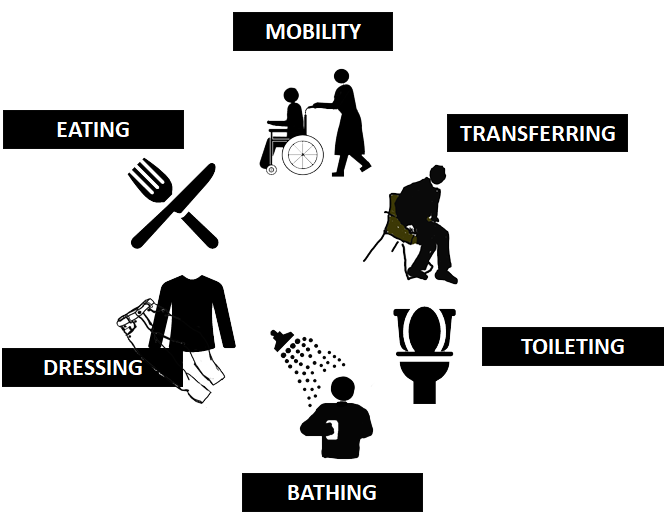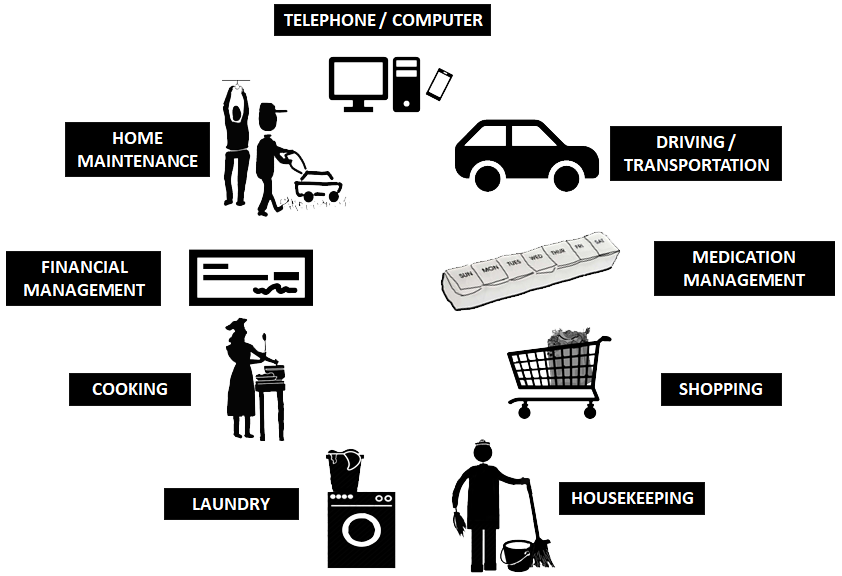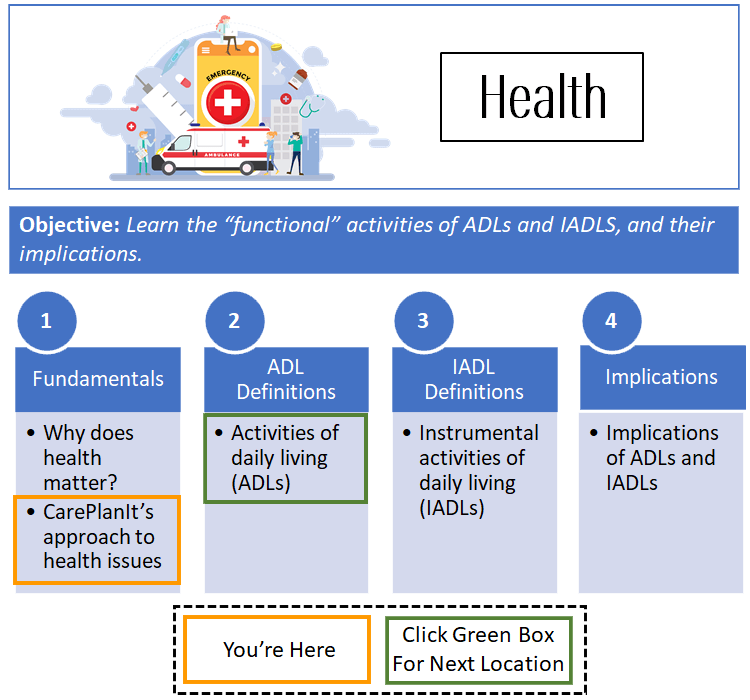Health Definitions For Seniors
Click here to see what's on this page.
CarePlanIt views health issues from a functional perspective. We view health definitions similarly. What do seniors do in their day-to-day life? Those activities and tasks require a certain level of health. In other words, what do I need to do day-to-day to lead the life I want. Said another way, if I can’t do these things, someone is likely to have to do them for me.

Two Categories Define Senior Health
These categories reflect how the senior caregiving industry assesses the health of seniors. Assessment defined by the senior’s ability to perform tasks in their daily life. The first is a senior’s ability to perform basic tasks like toileting, dressing, bathing, and eating. All of the things a parent must do for a baby. The second involves tasks like shopping, cooking, paying bills, keeping appointments, and doing laundry. All the basic skills you tried to teach your teenager before they left home to live on their own.
Health Definitions Help Assess The Care Needs Of Seniors
When do seniors need help? How do you assess the care needs of seniors? Remember the riddle of the Sphinx? “What creature in the morning goes upon four feet; upon two feet in the afternoon, and in the evening upon three?” It’s man who crawls as a child, walks as an adult, and uses a cane as an old man. As we age, we lose the ability we had as an adult, and over time revert to the capabilities of a child. As we age, we need help, first with the skills we teach our teenagers, and eventually, with the care we give our babies.
When seniors talk about health, they talk about their diagnosis most of the time. They discuss what their specialists say, what disease was identified, and treatment options. My father was a doctor. He’d discuss similar things when he talked to other doctors about patients. The difference is, the doctors know how to diagnose disease, how symptoms present, the best treatment protocols for a diagnosed condition, and how to change and adjust treatments and protocols. Seniors that aren’t doctors don’t. So what’s going on?
We Play Doctor Because We’re Afraid Of The Unknown
When we’re afraid, we often project ourselves into the role of the person who can theoretically solve the problem. A flare-up in the Middle East and lots of us talk like diplomats. A friend tells us their child is being bullied at school, and lots of us talk like child psychologists. We’re diagnosed with cancer; we talk like oncologists. This is human nature. A defense mechanism for fear and anxiety. However, we’re not diplomats, psychologists, or oncologists. Obviously, our solutions reflect this reality.
Seniors and their families should focus on how to assess senior care needs. This is where they can help most.
Senior Care Is Related To Health Definitions
Super Agers don’t focus as much on diagnosis, and when they do, they almost always wrap the discussion on how the disease will impact their daily lives. They examine the manifestation of their illness, not the illness itself. Likewise, the senior health care industry has well-defined categories and assessment tools for how a disease or condition affects your daily life. Studies show they are based on seniors’ functionality in conducting their day-to-day activities. These are activities of daily living (ADLs) and instrumental activities of daily living (IADLs).
Activities of Daily Living (ADLs) Are Health Definitions
ADL’s are basic activities related to senior care and include; toileting, mobility, eating, dressing, and bathing. Carmen and I needed help with our ADL’s after surgeries. We were able to help each other with toileting and dressing. If we hadn’t had each other or were too weak to help each other, we would have needed a caregiver to provide senior care.

Instrumental Activities of Daily Living (IADLs) Are Health Definitions
IADL’s are complex activities associated with maintaining a home. They include things like shopping, managing finances, housekeeping, laundry, and food preparation. My mother was hospitalized for dehydration. When she returned home, I spent a few weeks at her house to help with finances, shopping, and cooking. Had I not been available, she would have needed to hire other people to do those things.

History Of ADLs & IADLs
“Activities of daily living” began in the health and physical fitness domains. Early investigators asked questions about the functionality of various populations related to their ability to perform everyday activities. The physiotherapist Edith Buchwald is credited with first using the term “activities of daily living.” She used it as an assessment checklist. In the 1950s, these assessment tools were being used to track and evaluate seniors. Specifically, elderly patients recovering from hip fractures. Instrumental activities of daily living emerged in the 1960s to assess a person’s ability to live at home independently.
Today, ADLs are used in the health industry as an umbrella term relating to an individual’s ability to care for oneself without help. IADLs are used to help assess someone’s ability to live independently.
How Health Impacts Housing
Health from a functional perspective is critical. The senior care you need differs based on your abilities. Health plus your financial situation determines many of your housing options. The healthier you are the more options you have. Understanding the health issues every Ager is likely to confront and thinking through how you can functionally respond to these issues is important in realistically thinking about intermediate and long-term housing options. Getting home care as soon as you need it is a way to minimize injuries and stay in your home longer. Families can provide this home care assistance when it’s easy and involves only a few hours a week. Assistance like paying bills, grocery shipping, house cleaning, and meal preparation. This keeps their parents in their homes longer.
That’s why one of CarePlanIt’s master techniques is health. You’ll need to understand the definition of ADLs and IADLs.

Here’s where we explain high-functioning Ager abilities. When elders need just a little help. The kinds of help that family, friends, and assisted living facilities provide. Click here.
Here’s where we explain lower-functioning Ager abilities. When elders need a lot more help. The kind of help that requires a caregiver. Click here.